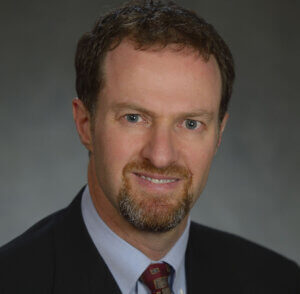
Speakers
Steven Joffe, MD, MPH
Art and Ilene Penn Professor and Chair
Department of Medical Ethics & Health Policy
University of Pennsylvania Perelman School of Medicine
Keywords
Ethics, Learning Health System
Key Points
- Academic medical institutions may seem like the natural setting to build Learning Health Systems (LHS), but they face unique structural barriers that require leadership, focus, and intentionality to overcome.
- Dr. Joffe and his collaborators conducted a preliminary study of qualitative interviews, funded by PCORI, with 99 leaders of 16 geographically diverse Learning Health Systems. The LHS were identified by AAMC Research on Care Community, self-descriptions, and snowball referrals, and they included LHS that are medical school affiliated and non-affiliated, safety net systems, and children’s hospitals.
- The key questions asked during the interviews were: In your view what defines an outstanding LHS? How does your org approach governance and oversight of learning within your LHS? How are patients and families included in governance of learning within your LHS? From these questions three main challenges emerged.
- The research team identified three main challenges academic medical institutions face in building LHS. One challenge is that academic medical institutions traditionally have multiple missions, including research, patient care, and education, and systemically integrating learning into clinical operations is novel addition to the traditional missions.
- Another challenge is that LHS benefit from a certain degree of centralization and hierarchy, allowing them to establish system priorities, standardize practices and implement lessons learned. Academic medical systems place a high value on faculty autonomy, where individual investigators determine the focus of their research. They place a high value on external funding that their faculty bring into the institution. In contrast, an institution that is committed to being an LHS must commit its own resources in pursuit of that mission.
- Finally, the incentive structures at academic medical institutions differ from those in an LHS. Traditional faculty incentives in academic medical centers typically include pursuit of investigator-initiated innovation and research, external funding, and publication in prominent journals. In contrast, a high-functioning LHS requires teamwork, deference to system or unit priorities, and a focus on improving local outcomes, efficiency, and expertise.
- Despite the challenges, progress is possible. It requires leadership, focus and intentionality making it central to the mission of the organization. It also means creating a pathway that ties faculty promotion to the contributions they make to the learning mission.
Discussion Themes
-Has COVID-19 shifted the dynamic of Learning Health Systems, and if so, how? There might be an opportunity to learn from the lessons of Covid. People had to very quickly decide where are our priorities, invest resources, do clinical trials, move into an environment with little patient/provider contact, and suddenly folks from multiple parts of the institution were together making decisions. A next step would be to do after action reports on what they did; what did we do that we could learn from and reorganize ourselves? How do we strategically choose the things that are the most important given the resources available?
–Is this ethically problematic that we don’t have LHS proceeding in academic medical centers? How can institutions help move the needle? The argument for LHS model is strong. The opportunity is there given the data available in the EHR and the ability to implement pragmatic clinical trials. Given what we know in the gap between the care that is possible and care that is delivered, there is an ethical imperative to pursue the learning mission. It is incumbent on all of us, and it should be a central part of the goal for all of us to deliver care to patients and families. We should all think about how our organizations can move in this direction.
Learn more
More info: https://www.pcori.org/research-results/2016/including-patients-governance-learning-health-systems
Additional reading: https://www.ncbi.nlm.nih.gov/pmc/articles/PMC8009845/
Tags
#pctGR, @Collaboratory1


